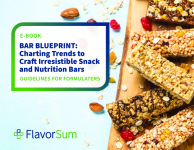No need for Irish folic acid fortification, say researchers
While the researchers noted that in its small target group of blood donors, new mothers and babies un-metabolised folate levels were low, it could not determine if this had health consequences and said it was working on further research into this area.
Folic acid is typically associated with neural tube defects (NTDs) in babies, but excessive consumption has also been linked with some cancers, especially in the elderly.
Even though the researchers, led by Mary Rose Sweeney from Dublin City University, determined there was probably no need to fortify the Irish diet, if this did occur, they predicted it would occur at levels of about 12 per cent.
The findings follow the conclusions of a working group set up by the Food Safety Authority in Ireland (FSAI) and which reported to the Irish Department of Health and Children, which in March determined that levels were adequate at least among women of a child-bearing age who were now receiving 30 per cent more folic acid than three years ago.
The incidence of NTDs had dropped to 0.93 per 1000 births from 1-1.5 in that time.
This was mainly due to the efforts of food makers that had taken it upon themselves to fortify the likes of breads and cereals.
In its March statement, the Implementation Group on Folic Acid Fortification’s chairman, Ala Reilly, said: “Whilst folic acid was only added to breakfast cereals for some years, now food manufacturers are adding folic acid to a large range of foodstuffs including dairy spreads, fruit juices, milk, yogurts, soups and cereal bars.”
The study appeared in the BMC Public Health, with the researchers seeking to determine how much un-metabolised folic acid existed in the Irish population.
“We detected low levels but we don’t know if they are helpful and so further research is required,”Sweeney told NutraIngredients.com.
“But this study will no doubt figure with others in determining the Irish policy in this area although for the moment it appears to be on hold.”
Fifty blood samples from the Irish Blood Transfusion Service along with samples from 20 mothers and 20 infants' umbilical cords, from Coombe Women's and Infants' University Hospital in Dublin.
They found that circulatory un-metabolised folic acid was present in the majority of the sample.
"This implies constant exposure of both normal cells, and potential tumour cells, to this pro-vitamin amongst Irish consumers,” they wrote. “In terms of the increase that might arise if mandatory fortification goes ahead, we predict it to be in the region of 12 per cent.”
Folic acid is a B vitamin known to reduce the risk of NTDs by up to 70 per cent if taken prior to conception and up to 12 weeks after conception.
Source: BMC Public Health
2009, 9:295
‘Persistent circulating unmetabolized folic acid in a setting of liberal voluntary folic acid fortification. Implications for further mandatory fortification?’
Authors: Mary R Sweeney, Anthony Staines, Leslie Daly, Aisling Traynor, Sean Daly, Steve W Bailey, Patricia B Alverson, June E Ayling and John M Scott.













